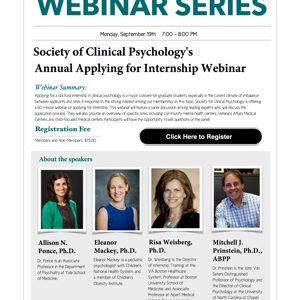Psychological Assessment Considerations Series: Gender Identity: Terminology and beyond in the context of psychological assessment
$10.00
Presenters:
Cyrano Patton & Cole Morris
Overview:
While sexual minority identities have become less and less pathologized since their appearance and removal from the DSM, transgender and gender expansive (TGE) identities and affirmation is still poorly understood and practiced within clinical psychology, broadly. Indeed, transphobia cand related microaggressions can and do even occur during a TGE person’s own psychotherapy (Elder, 2016). Despite the importance of honoring intersectionality in all branches of psychology (American Psychological Association, 2017), the area of psychological assessment is a particularly fraught area for TGE individuals, that has received little attention (but see K eo-Meier & Fitzgerald, 2017 for one excellent example). This webinar will first focus on understanding the history, impact, and importance of affirming practices for TGE people. Research suggests that increasing understanding of TGE identities and experiences is the best way to reduce harms to these communities (Hendricks & Testa, 2012; Bryant et al., 2021). Then, specific ways in which TGE identities, terminology, and lived experiences arise in the context of assessment with be outlined. This webinar component will lay the groundwork for later lenses and concrete strategies to improve equity, inclusivity, and affirmation of TGE identities withing psychological assessment.
Learning Objectives:
- Sensitively define and describe some TGE identities and vulnerabilities, using gender-affirming language, and how these relate to components of psychological
- Analyze and discuss the harmful impact of applying majority frameworks, e. cisgender and heteronormative ideologies to TGE clients.
- Demonstrate and apply cultural humility to psychological assessment with TGE
Description
Presenters:
Cyrano Patton & Cole Morris
Overview:
While sexual minority identities have become less and less pathologized since their appearance and removal from the DSM, transgender and gender expansive (TGE) identities and affirmation is still poorly understood and practiced within clinical psychology, broadly. Indeed, transphobia cand related microaggressions can and do even occur during a TGE person’s own psychotherapy (Elder, 2016). Despite the importance of honoring intersectionality in all branches of psychology (American Psychological Association, 2017), the area of psychological assessment is a particularly fraught area for TGE individuals, that has received little attention (but see K eo-Meier & Fitzgerald, 2017 for one excellent example). This webinar will first focus on understanding the history, impact, and importance of affirming practices for TGE people. Research suggests that increasing understanding of TGE identities and experiences is the best way to reduce harms to these communities (Hendricks & Testa, 2012; Bryant et al., 2021). Then, specific ways in which TGE identities, terminology, and lived experiences arise in the context of assessment with be outlined. This webinar component will lay the groundwork for later lenses and concrete strategies to improve equity, inclusivity, and affirmation of TGE identities withing psychological assessment.
Learning Objectives:
- Sensitively define and describe some TGE identities and vulnerabilities, using gender-affirming language, and how these relate to components of psychological
- Analyze and discuss the harmful impact of applying majority frameworks, e. cisgender and heteronormative ideologies to TGE clients.
- Demonstrate and apply cultural humility to psychological assessment with TGE






Reviews
There are no reviews yet.